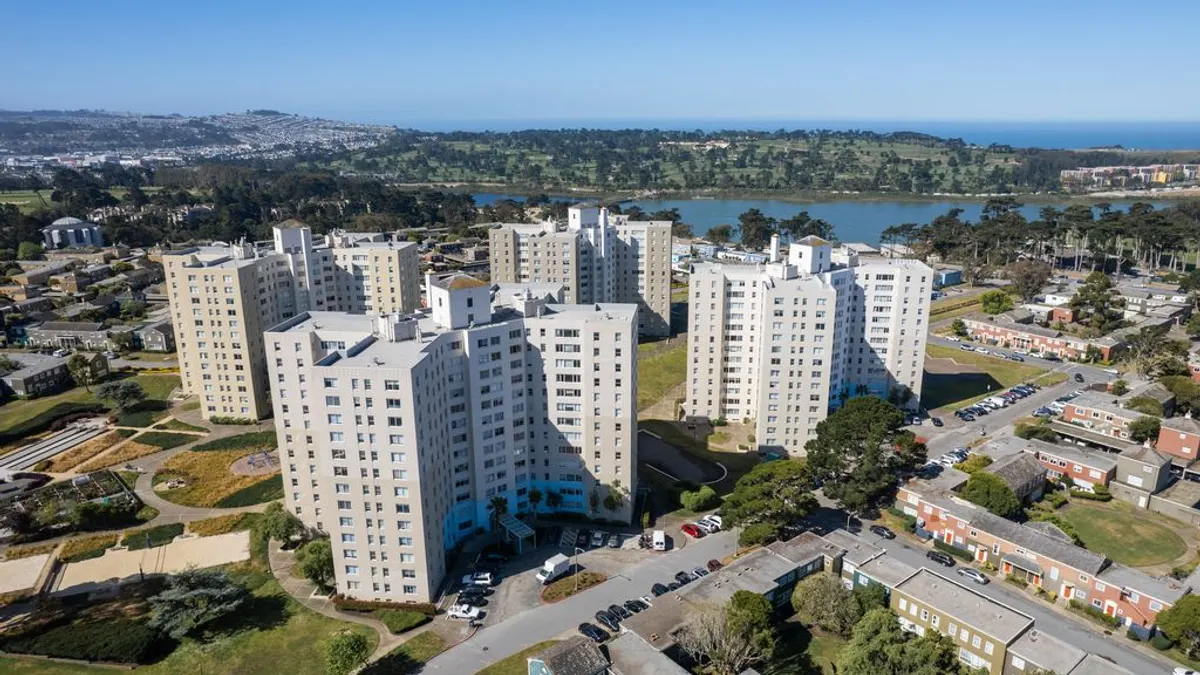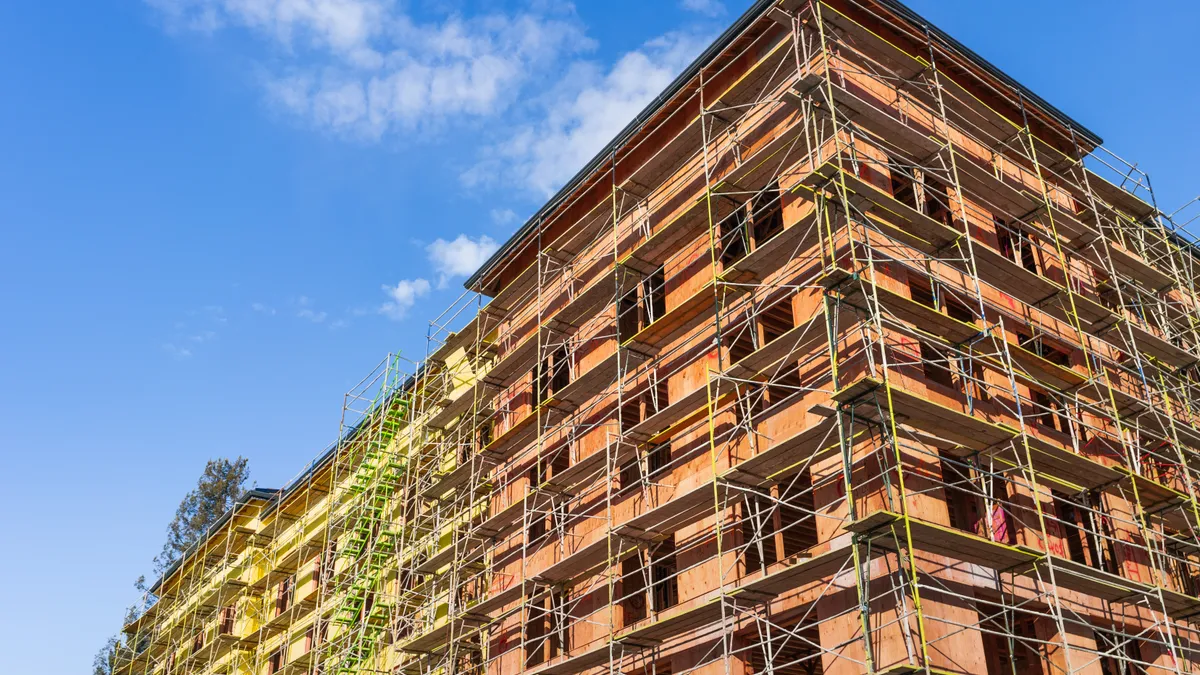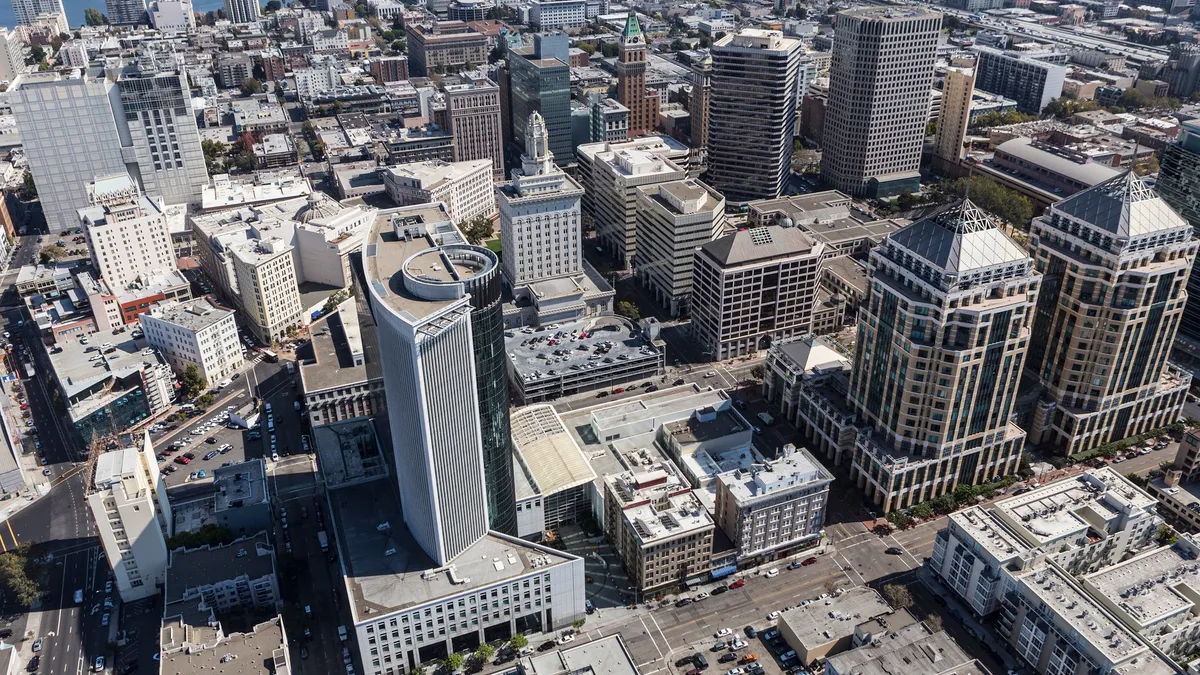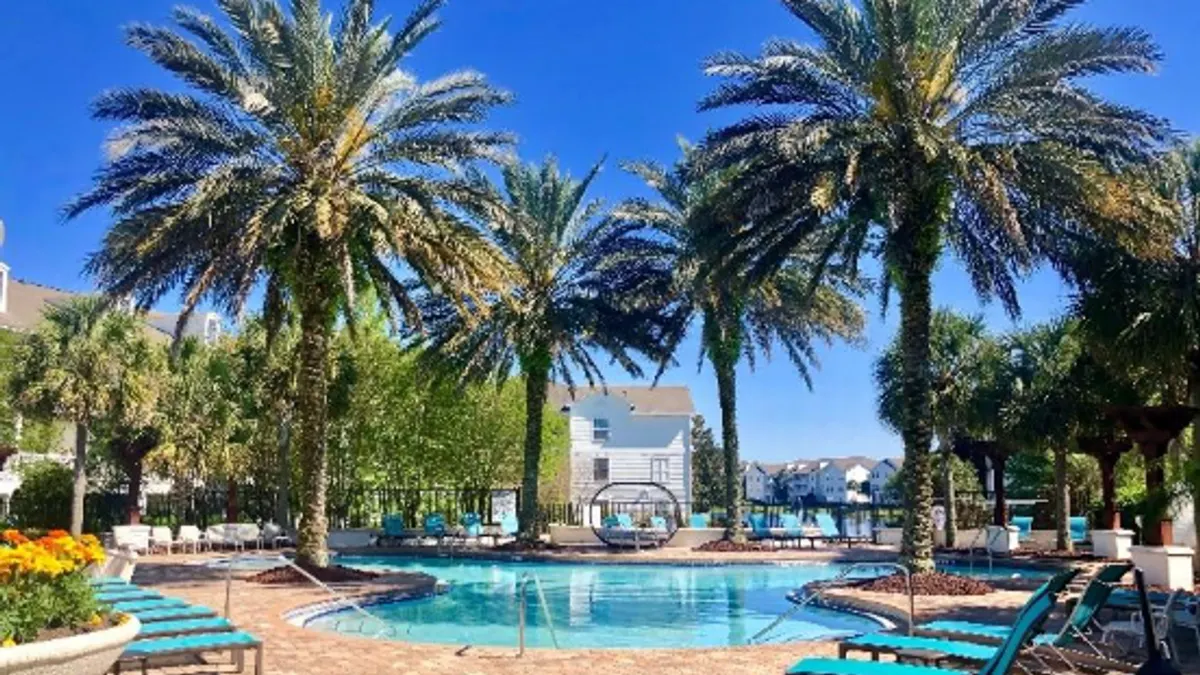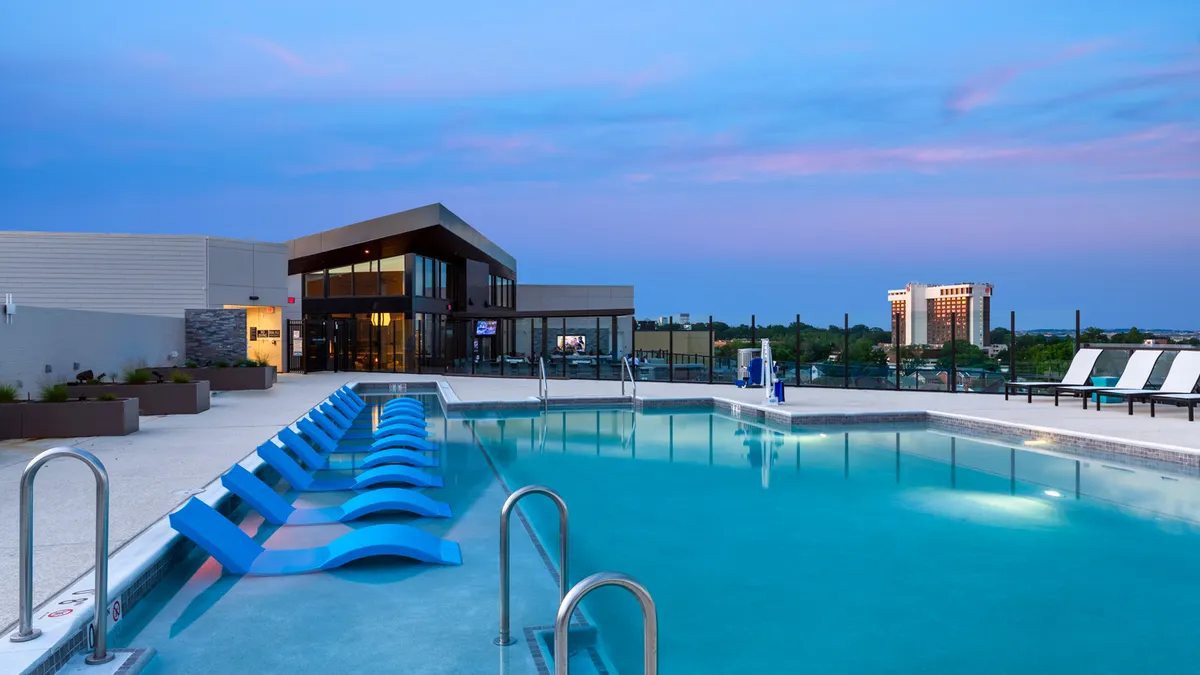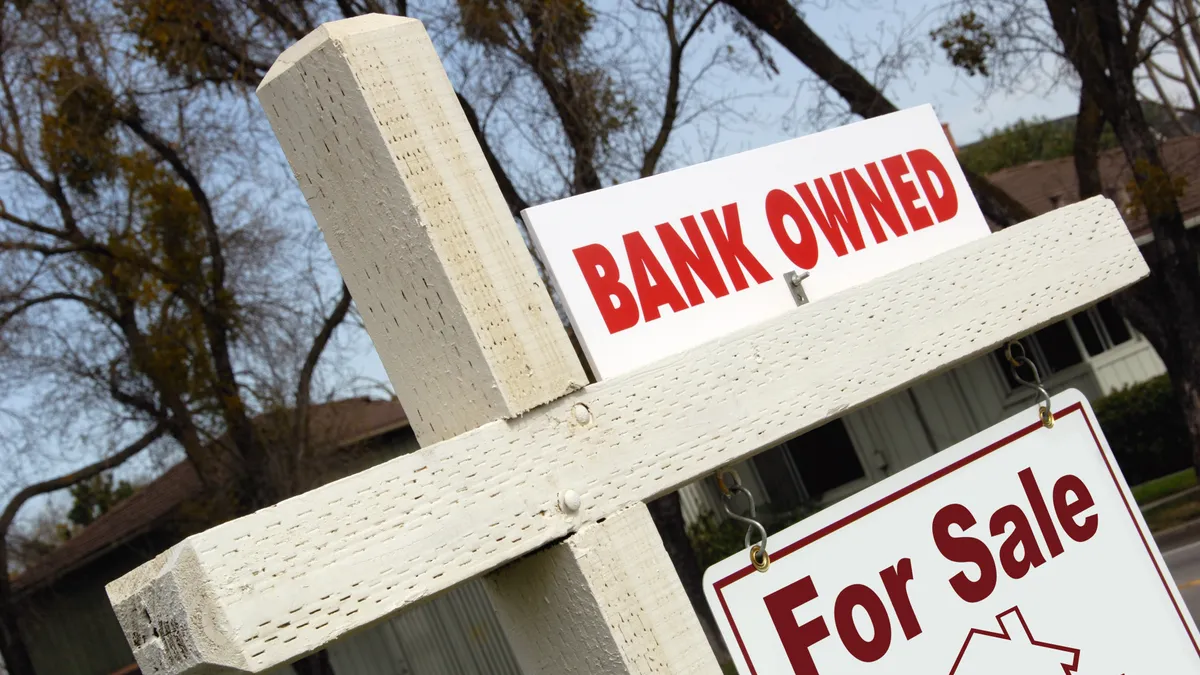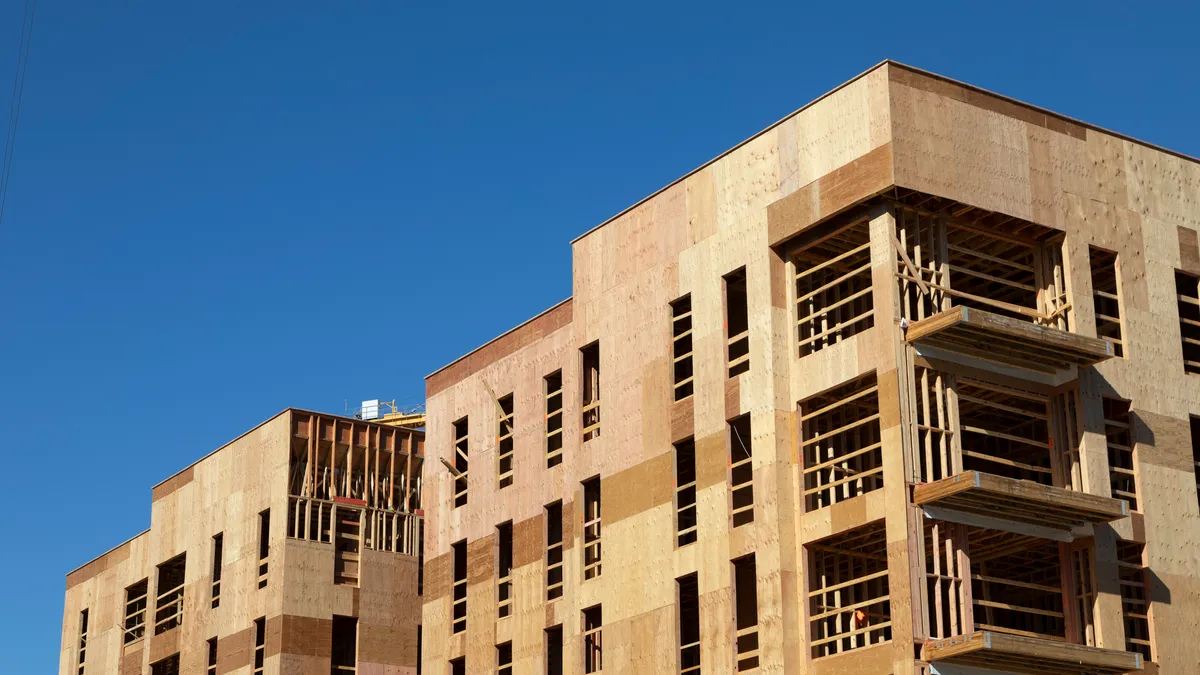ParkMerced may be the poster child for this current wave of multifamily loan issues.
The property, the largest residential community in San Francisco, comprises a 152-acre development located in the city’s southwest corner. It includes 3,221 apartments, 11 12-story buildings and 1,493 garden-style units. In all, around 8,000 people live there.
However, ParkMerced’s size hasn’t spared it from financial challenges. In March, the loan backing the property went into receivership. Douglas Wilson Cos. was enlisted to fix the asset, which had been owned by Robert Rosania, the founder of San Francisco-based apartment investor Maximus.
Wilson’s San Diego-based real estate services firm plans to invest more than $70 million in initial capital improvements to address immediate health and safety issues and to stabilize the community. It will also preserve the entitlements of ParkMerced's current redevelopment plan for future developers.
Douglas Wilson will focus on repairing and replacing health and safety deficiencies, including inoperable elevators, interior and exterior lighting issues, water intrusion and mold problems. It brought along Brick + Timber, an affiliate of the San Francisco-based real estate firm Ballast, to manage the community.
“There are just a lot of cleanup issues because the prior ownership had been capital-starved for some years, and they had kind of hidden a lot of sins under the rug,” Douglas Wilson, chairman and CEO of the company, told Multifamily Dive.
However, ParkMerced is far from Douglas Wilson’s only turnaround. The firm is regularly contacted by lawyers and lenders dealing with problem loans across various asset classes, including apartments, hotels, offices and even operating companies.
“We're busier in the last four months than we've been in 15 years, meaning since the Great Recession,” Wilson told Multifamily Dive in June.
Here, Wilson talks with Multifamily Dive about the problems he’s seeing in the apartment market, the time it takes to turn around a distressed property and the trouble spots for distress.
This interview has been edited for brevity and clarity.
MULTIFAMILY DIVE: How have you seen apartment owners get into trouble?
DOUGLAS WILSON: A lot of these projects, apartments and other properties, were underwritten in 2017, 2018 and 2019, and their capital stack was put together with all of these assumptions moving forward. Many of those had short-term debt, typically five years or less.
When the pandemic occurred, the music stopped and costs obviously began to rise due to supply chain issues and other problems. There was so much liquidity pumped into the system by governments around the world that we suddenly found ourselves emerging from an interest rate environment that had been very low for about a decade. We had a whole generation of developers and operators who thought that was normal. Then, suddenly, costs increase by 30%, and interest rates rise to counteract the inflation.
What did that mean for the apartment buildings?
You can have these nice class A apartment buildings. But when they came up for new loans in the last 18 months, the capital markets have not supported them. Values have gone down, but the loans are not out there to replace the existing debt. Now, a lot of these lenders were extending and pretending loans. But in the last six to nine months, we're seeing people say, “Hey, we've got to get our hands on this problem. We've got to get a resolution.”
Most of these owners are out of money. Their equity is already gone, and therefore, their incentive to stick around is not great.
With all this new supply, are you seeing newer properties encounter problems more frequently than during the 2008-2010 timeframe?
We absolutely are seeing newer properties, and I think that's a trend that's going to continue. There is one in Washington, D.C., that's only five years old. It's not an old property. There is one in LA that was just completed a few months ago.
We're seeing some of these newer assets, which were built and were underwritten some time ago. Now, they've got to come up with replacement financing.
What are the operational priorities when you’re assigned a newer property that may not have capex issues?
With some of these newer ones, it's a matter of operating as efficiently as we can. Let's bring in a new third-party manager. We're not a management company. We're a strictly professional advisor that comes in and hires the best and brightest locally, with the skill set on the ground in those markets, because it's a local business.
How long do you typically hold these assets?
It depends. ParkMerced has a lot of heavy lifting to do. We’re doing a very aggressive capex repositioning, we brought in new management and we’re rebranding it. We’re doing a lot of hard work so we can improve the asset value. And so that'll go on for a couple of years, most likely.

Normally, they'd be at least a year, because a year goes by very quickly. We need enough time to be able to step in and bring in the right new management at the local level to oversee the process, reposition the asset, enhance its value, maybe complete some construction and clean up some entitlements. There may also be liens on the property.
So I would say a year is a minimum. Two years is probably an average.
Do you ever encounter apartment properties that are in such bad shape that you won’t take them on?
Let's say we've got to be selective, but we haven't seen one that bad yet. In our world, not everything is pretty. So we understand what it takes to make these corrections. But we will be thoughtful about the projects we do because we have to be selective. There's only so much you can do.
We’ve talked about LA and San Francisco. Are there other problem areas for apartment properties nationwide?
Denver has its issues that we're seeing. These smaller markets also have their issues. We’ve got a small deal in Abilene, Texas. It has 40 units, and half of them are occupied. It's got a lender that we have a relationship with. So, we went in and hired local management in Abilene with a construction management firm that could actually fix and turn these units.
We've been in there about nine months, and it's leased up to like 85%. We'll get it up to 90% pretty soon. Then, it has value to sell. When we first got involved, it didn’t.
Click here to sign up to receive multifamily and apartment news like this article in your inbox every weekday.


